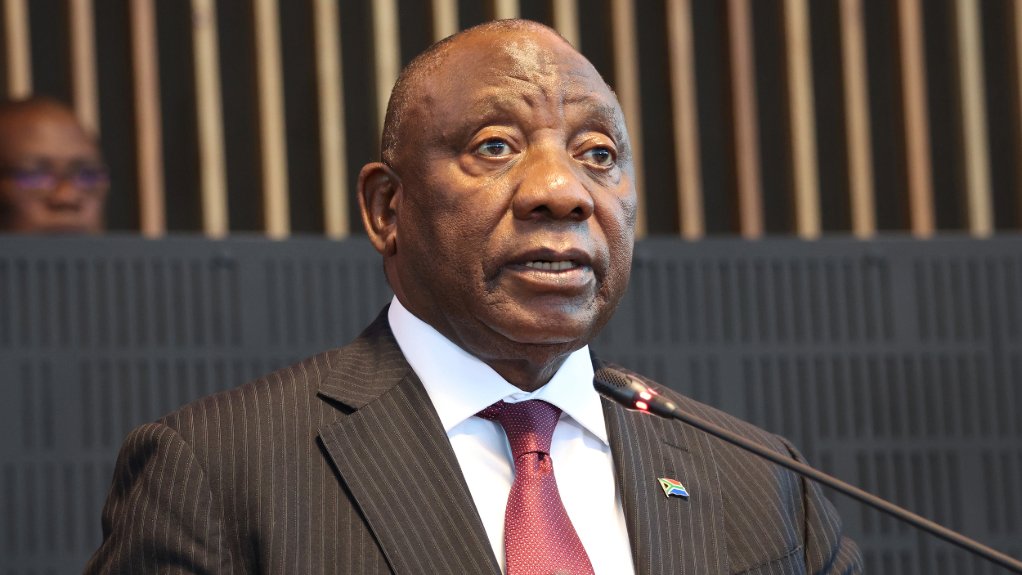President Cyril Ramaphosa said on Wednesday that society should insist that women have more control over their lives and economic independence, which he believes will reduce their vulnerability to violence.
Ramaphosa was speaking during the biennial conference of the International Association of Women Judges in Cape Town, where he said that to apply the law fairly in cases of gender-based violence, the composition of the bench matters, particularly with respect to outlook.
“Of course, one cannot go by perception or assumption. One can have progressive and reform-minded male jurists as much as one can have conservative, anti-reform female jurists. Yet, we strive to ensure there is greater female representation on the bench because it is a transformational imperative,” he said.
Ramaphosa noted the profound effects of gender-based violence and femicide (GBVF) on women and girls, such as physical injury, long-term mental health problems, and even death.
“It is the result of complex societal, cultural, and structural factors: some of which are the unequal power dynamics between men and women, cultural norms and practices, unemployment, conflict and wars, and patriarchy.
“Furthermore, there is economic violence against women where they are prevented from accessing financial resources and achieving independence, thereby condemning them to poverty,” he explained.
He highlighted that South Africa had come a long way from a time when the bench had only three black male judges and not a single black woman.
“Today, about 48% of judges in our superior courts are female and 6 out of our 15 superior courts are led by women, including the Constitutional Court and the Supreme Court of Appeal. At the level of the magistracy, more than half of our magistrates are female,” he pointed out.
Ramaphosa said female jurists had particularly “strong influence and can shift the broader judicial culture with respect to GBVF”.
He welcomed the commendable progress that had come from the inclusion of females, such as improving courtroom procedure to make them more survivor-centric and streamlining the procedures for obtaining protection orders.
LAWS AND LEGAL SYSTEM
However, he noted that a central issue was overcoming the blind spots in the law and the legal system that were working against the rights and interests of survivors.
He explained that for the fight against gender-based violence to be strengthened and to have a measurable and sustainable impact, it was critical that these deficiencies were addressed to bring about change.
He highlighted that in 2022, South Africa passed a trio of laws to strengthen the legal framework and offer greater protection to survivors.
Ramaphosa explained that suspects accused of serious and violent crimes against women were being granted bail and were absconding, and re-offending, and that courts were not applying prescribed minimum sentencing laws for crimes like rape, and serious offenders were receiving light sentences.
He added that survivors of domestic violence were experiencing secondary victimisation by the police and the courts.
“It became clear there was a contradiction at play, with strong laws to advance women’s rights on one hand, and stubbornly high levels of gender-based violence on the other. It then became necessary to examine whether the issue was with survivors not achieving justice through our courts, with lack of implementation of the law; or with deficiencies in the laws themselves,” he said.
He noted that though these factors all played a role, gaps in the law were identified as a serious challenge contributing to uneven application.
This was found to be widespread across the judicial system, from the magistracy to the lower and higher courts, he explained.
In 2022, following an extensive public consultation process, government amended the Criminal Law (Sexual Offences and Related Matters) Amendment Act; the Criminal and Related Matters Amendment Act and the Domestic Violence Act, as part of the wider effort to combat GBVF.
Ramaphosa said in response to these amendments, the Department of Justice and Constitutional Development was tasked with developing regulations to facilitate their implementation, noting that the work was ongoing.
He explained that last month regulations were passed to give effect to the amendments to domestic violence legislation.
EMAIL THIS ARTICLE SAVE THIS ARTICLE ARTICLE ENQUIRY
To subscribe email subscriptions@creamermedia.co.za or click here
To advertise email advertising@creamermedia.co.za or click here











